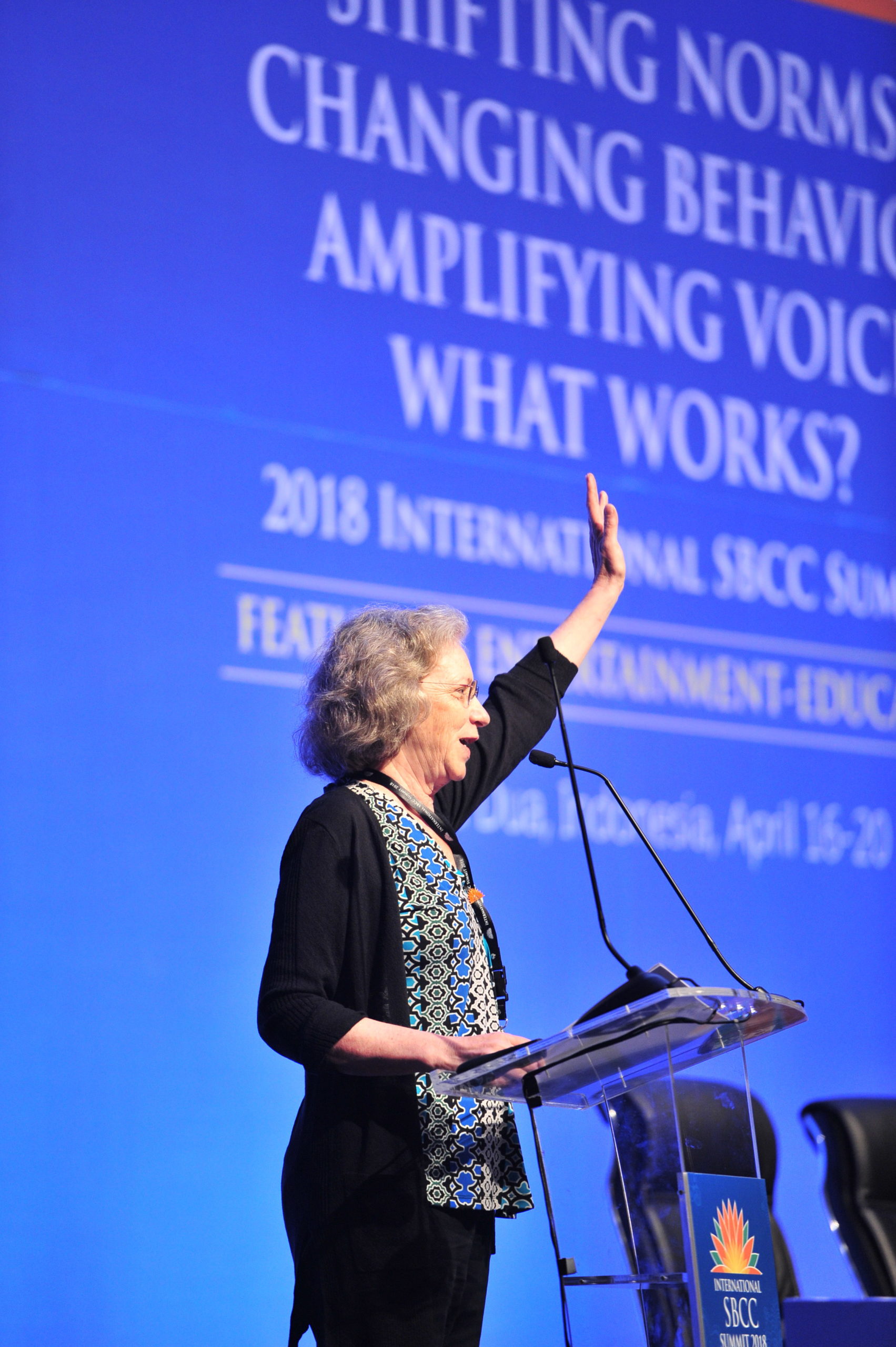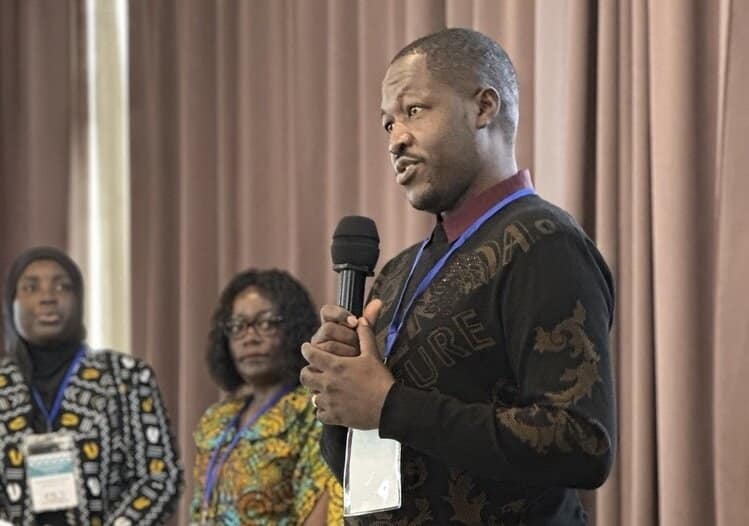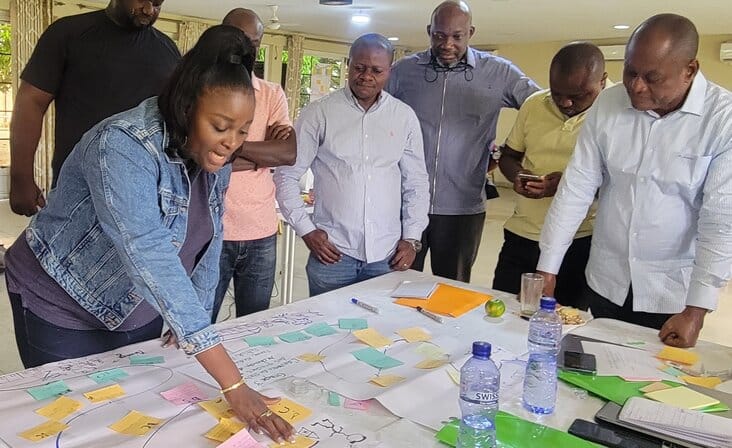The 2018 International Social and Behavior Change Communication Summit officially kicked off on Monday with enthusiasm, optimism and five strikes of a celebratory gong, courtesy of Dr. Mohamad Subuh, health economics advisor for Indonesia’s Ministry of Health.
“A very warm welcome to all and may your week be filled with inspiration, learning, challenging conversations, fun and insights that help us collectively to take our work forward into the future,” said Susan Krenn, executive director of the Johns Hopkins Center for Communication Programs, as she opened the five-day event in Nusa Dua, Indonesia.
Krenn outlined the three themes of the week:
- Understanding what works: critically looking at the evidence, understanding what is working and what is not
- Making sense of now: exploring and understanding the trends that are shaping our work, from the UN’s Sustainable Development Goals to the growth of digital media to the use of behavioral economics, human-centered design, entertainment-education and other innovations emerging in this space
- Voice and agenda setting: examining issues around what agendas are being set by whom as well as agenda setting and the important role of advocacy
Subuh spoke to the great value of SBCC to protecting health in Indonesia. “There are so many different issues today that require thoughtful and strategic SBCC approaches,” he said.
Meanwhile, Amina J. Mohamad, United Nations Deputy Secretary-General, addressed the more than 1,100 participants from 93 countries and 429 organizations via video, talking about how SBCC can be used to tackle “our shared challenges.”
“The UN is looking forward to working together with SBCC practitioners and all stakeholders to more fully integrate SBCC strategies into development agenda and practices,” she said.
Nahla Valji, senior gender advisor in the United Nations’ Executive Office of the Secretary-General, spoke passionately about the importance of shifting attitudes about women to reinforce equality and empowerment, unlocking the potential of half of our societies.
The UN’s SDGs cannot be achieved without the strategic deployment of SBCC to shift beliefs, perceptions and behaviors to improve health around the world, she said. She said it cannot be done without “people-centered” development, involving men and women, young and old in the process, especially those “at most risk of being left behind.”
“Over the next few days, all of you will have a critical and potentially transformational role in addressing issues ranging from climate change to access to justice, from maternal and child health to violence and discrimination and myriad other challenges that we face globally,” she said. “Changes in social structure and human behavior cannot be influenced significantly by chance. They must be approached in an evidence-based, strategic way using the best that science and the wisdom of practitioners has to offer. Hence the significance of the SBCC Summit.”
The Summit has been organized by a consortium of international and local partners including CCP, UNICEF, the Communication Initiative, Soul City Institute and BBC Media Action. The Summit continues through Friday.





